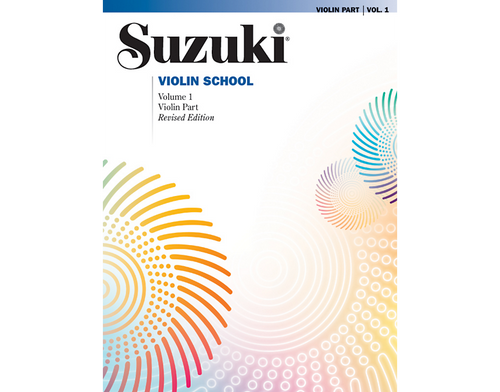Description
The Suzuki Method of Talent Education is based on Shinichi Suzuki's view that every child is born with ability, and that people are the product of their environment. According to Shinichi Suzuki, a world-renowned violinist and teacher, the greatest joy an adult can know comes from developing a child's potential so he/she can express all that is harmonious and best in human beings. Students are taught using the "mother-tongue" approach. Each series of books for a particular instrument in the Suzuki Method is considered a Suzuki music school, such as the Suzuki Cello School. Suzuki lessons are generally given in a private studio setting with additional group lessons. The student listens to the recordings and works with their Suzuki cello teacher to develop their potential as a musician and as a person. This Suzuki Book is integral for Suzuki cello lessons. Titles: Twinkle, Twinkle, Little Star Variations (Suzuki) * French Folk Song (Folk Song) * Lightly Row (Folk Song) * Song of the Wind (Folk Song) * Go Tell Aunt Rhody (Folk Song) * O Come, Little Children (Folk Song) * May Song (Folk Song) * Allegro (Suzuki) * Perpetual Motion in D Major (Suzuki) * Perpetual Motion in G Major (Suzuki) * Long, Long Ago (Bayly) * Allegretto (Suzuki) * Andantino (Suzuki) * Rigadoon (Purcell) * Etude (Suzuki) * The Happy Farmer from Album for the Young , Op. 68, No. 10 (Schumann) * Minuet in C, No. 11 in G Major from Notebook for Anna Magdalena Bach , BWV 841 (Bach) * Minuet No. 2 from Minuet in G Major , BWV 116 (Bach).






